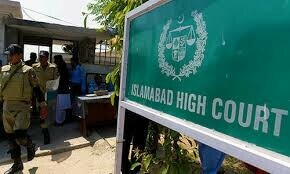ISLAMABAD: The Meteorological Department on Sunday warned of a drop in temperatures after rainfall expected in the first week of November.
In addition to rainfall in northern Khyber Pakhtunkhwa, the twin cities, Gilgit-Baltistan and Kashmir, snowfall is also expected higher in mountainous regions such as Malakand and Swat, the Met Office said.
“Unlike last year, temperatures will drop below normal in November. Winter rains are expected to be normal this year, and proper winter showers are expected in December. Last year these showers were delayed until the end of January,” Met Office Director Dr Khalid Malik.
The winter rainfall is not expected to recharge water levels in reservoirs and the aquifer, Dr Malik added. He said it is summer and not winter rainfall that recharges groundwater levels or raises the level of water in dams.
“The issue of the water shortage in reservoirs and the depleting aquifer will continue,” he said.
Dr Malik explained that water bodies were recharged by the 65pc of rainfall that occurred during three summer months. The remaining 35pc of rain is spread over the other nine months, which is also called a transition period and which we are now experiencing, he said.
Winter rainfall expected to be normal this year, will not recharge reservoirs, aquifer, official says
He added that even with more solid precipitation – snowfall – water will not be available when the snow melts next summer.
The Met Office had issued a drought alert in southern parts of the country in September.
According to the Met Office, its short-range weather forecast ranging from a few hours to three days is 89 to 90pc accurate. The medium range forecast – between three and seven days – is 72 to 73pc accurate, and the long range forecast – up to three months – is around 67pc accurate, as they are around the world.
Environmentalists at the Ministry of Climate Change have continued to raise concerns about groundwater depleting faster than it is being recharged.
“The problem is mismanagement and inefficient use of water at homes, in offices and for industrial purposes. It is criminal the way water is being wasted.
“There are more than a hundred housing societies in the capital that are drawing groundwater without any checks and balances. It is the responsibility of the Pakistan Environment Protection Agency to check the number of tubewells installed by these housing societies and the amount being drawn,” a ministry official said.
He said some of the larger societies drilling 400 to 500ft deep underground to extract what is called pristine water, trapped in rocks. Pristine water takes years to discharge.
The official suggested charging users for extracting groundwater just as they pay for other utility services to prevent water from being wasted.
Published in Dawn, October 29th , 2018
Download the new Dawn mobile app here:










































Dear visitor, the comments section is undergoing an overhaul and will return soon.